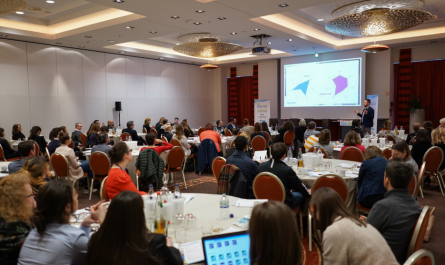Transforming qualitative research at Mars
The past few years have seen a transformation of qualitative research at Mars – moving from pen and paper to EEG. Sorin Patliniet, Global Insights Director at Mars described his journey at the recent Qual360 Europe conference.
Mars wanted to transform qualitative research to improve the impact of their advertising copy. It started its journey with the realisation that consumers’ attention is not on brands but on their family, work or the next holiday. Secondly, traditional qual research has shown that consumer responses did not correlate with purchase behaviours. In other words, the global CPG giant needed a new approach.
Moving qualitative research from pen and paper to EEG
“Consumers don’t think what they feel, don’t say what they think and don’t do what they say” (Daniel Kahneman)
Having realized the shortfalls in some of the traditional qualitative approaches, Sorin and his team turned to neuroscience. Over the past years the team decided that their future of qualitative research lies in neuromarketing for communications. “Ten years ago we asked straight forward questions but realized that most answers did not correlate with the future purchases of the brand” says Patliniet. “We needed to tap into the subconscious to better understand decisions.”
Having started their journey five years ago, the team at Mars saw an immediate improvement in ad effectiveness, from 45% to 75%. It proved that through neuroscience, the team better understood the complete view of the consumer.
Neuroscience: Emotion leads, intelligence follows
The best way to encode a brand into people’s memory structures is the use of emotions. Based on this, Sorin’s team transformed its qualitative research efforts to help optimizing ad copy. The goal was to ensure that the consumer’s attention is on the right piece of content so that emotions are helping to build memory structures. Eventually those memories should be triggered at the time of purchase.
Qualitative research on a global scale
Taking the transformation of qualitative research to a different level, Mars embarked on probably the largest neuroscientific study done in CPG. It included over 210 ads and research carried out across US, UK, Australia, Germany, Russia, China and France. The team used a combination of EEG, Eye tracking, Facial coding and Biometrics to understand attention, emotion and memory. This lead to a better understanding of the activation of distinctive assess such as brand distinctiveness and impact on category.
With technology enabling qual at scale, Sorin’s team identified two key learnings. First, not gabbing attention leads to failure. In TV or mobile ads, the early seconds are crucial. Surprising for many copy writers, storytelling does not work for advertising says Sorin. You need to build tension fast, not slow. Second, increase emotions throughout the ad. Watch out for drops in emotional response and trigger positive emotions early, ideally in the first three seconds.
Transformation: Turning the lab environment into at-home solutions
The global Covid crisis forced the Mars research team to re-think its transformation process. For instance, how can you use these tools developed for the lab when you cannot get people into a lab anymore? As a result, Mars quickly switched to at home eye tracking achieving almost two-thirds of the output from the lab environment (EEG). As a result, the company developed a mix of best in class data sources together with their supplier partners. The team continued with their behavioural measurement philosophy and in addition employed AI to do an assessment of its creative guideline compliance.
Four elements are now included in the advanced pre-testing tool. 1) A good understanding of view through rates 2) a deeper understanding of attention and distraction as observed directly from consumer responses 3) the understanding of emotional engagement throughout the ad 4) a check if all those learnings are embedded in each add via their “creative guidelines”.
The future of qualitative research
In summary, qualitative research has changed significantly at Mars. The company moved towards a mix of qual and quant and this way tested over 500 ads in the past year- with more to come. For Sorin, the definition of qualitative research itself is evolving through the lens of technology. A lot of innovation and new tools are opening up new possibilities. Last but not least, the look into consumers’ subconscious offers that element of consumer empathy. This, says Patliniet is still the predominant focus, that we try to understand the consumer.
Watch the full presentation, as well as dozen of case studies from international brands, in the Qual360 video library. You might also be interested in our Course Hero case study: “Qualitative research at an EdTech unicorn“.
Your next chance to hear from global qualitative leaders is at the upcoming Qual360 North America conference held on June 16&17. Sign up to our Email alerts for news, updates and special offers!











 by
by 

